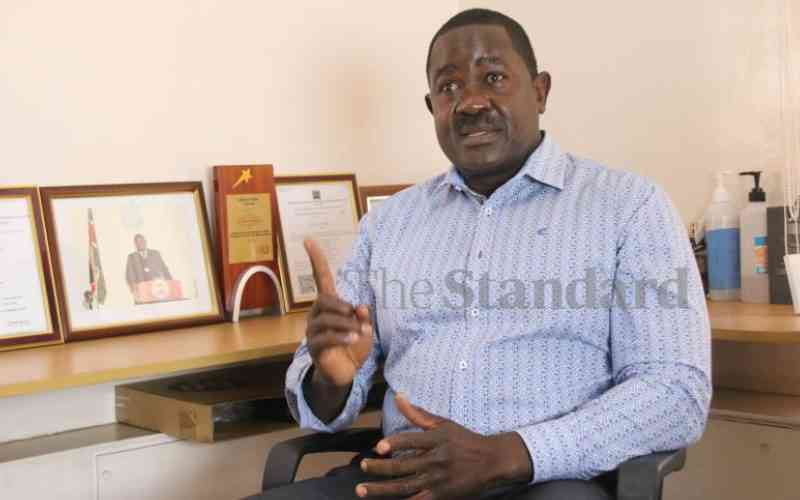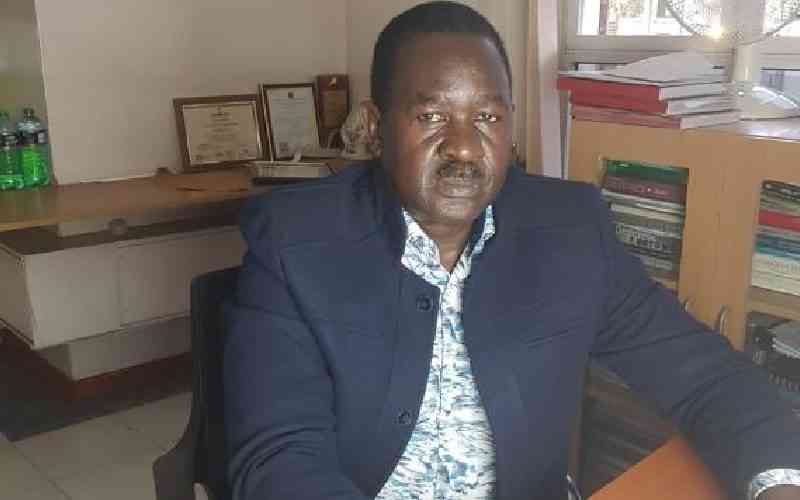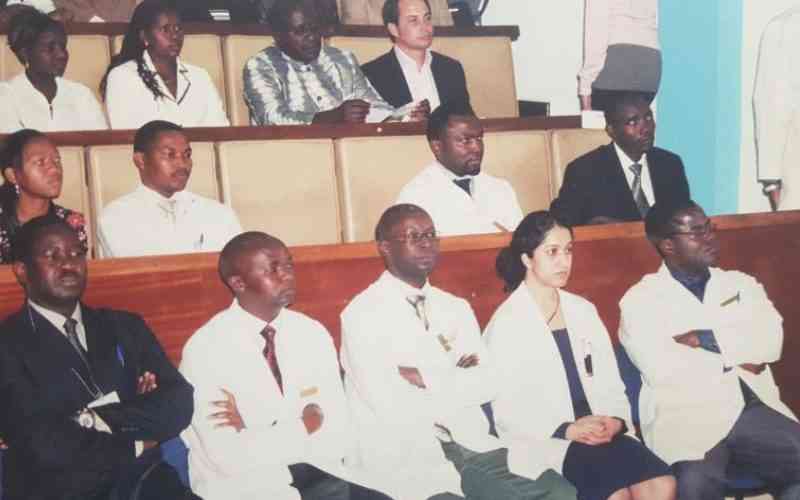
Conventional medicine is commonly understood to mean drugs, chemicals and masked medics in brightly lit operating theatres.
But to Dr Alfred Odhiambo, a specialist in radiology, it is more than that. Though, he has spent years studying the intricacies of the human brain and the spinal cord, he is an environmentalist at heart.
Dr Odhiambo’s golden rule is that taking care of plants is taking care of one’s health. He believes life is an interconnected maze in which everything depends on the community of living things around it and the quality of life is determined by our proximity to nature.
Dr Odhiambo, head of radiology at the Nairobi Hospital, was in another life a carpenter in Kibra slums for 15 years.
“I did woodwork, which was very natural having been born in the forest, having planted trees, watched them grow and some provided us with timber. That made me just love trees,” says Dr Odhiambo.
“My carpentry journey was inspired by a neighbour in Gilore, Taita Taveta County while in Form Two. I watched him create beautiful pieces out of wood and that really fascinated me.”
In Kibera, Dr Odhiambo ran a workshop at Makina, training over 10 carpenters before his full entry into medicine after completing his Masters degree in Diagnostic Radiology from the University of Nairobi.
Today, he works with different groups to transform Kibra when not training upcoming radiologists within and without the country. The aim is promoting urban farming and environmental conservation.
On the day we visited him, he was basking in greenery one would not expect in an informal settlement. The surrounding environment actually makes one forget where they are: from the fresh, soft sprout of kales and other vegetables covering the small patch like a green carpet.
It is just one among the many projects inspired by a tree planting exercise in 2018.

He shortly embarked on a massive greening campaign that within a short period had more than 100 tree seedlings scrounging for survival among the desolation of the slum.
“The trees actually did well,” explained Dr Odhiambo, whose efforts would later transform parts of Kibra in spectacular ways-one tree at a time and greatly helped by 30 groups whose scope of environmental conservation has been expanded to urban farming.
Dr Odhimbo’s project thus shifted focus from mere conservation to food, which is an existential problem among the hundreds of thousands of people who call Kibra home.
“At the beginning of 2020 we decided to go beyond just planting trees,” he says. “We planted a few flowers and took it a notch higher by exploring the concept of urban farming and permaculture.”
Urban farming refers to the growing of food in small quantities in urban settlements, which eases the financial burden of feeding families. Permaculture, on the other hand, is the development of sustainable and self-sufficient agricultural ecosystems.
In the chaos of modern life and in the wake of climate change that is affecting food supply chains, these two concepts have gained currency globally. Dr Odhiambo believes the alleyways of Kibra are a good place to start this crucial version of agrarian revolution.
He believes biological solutions in urban farming are key to raising a healthy nation. This kind of farming, he says, is different from the conventional that tends to misuse or over-use fertilisers to increase yields, or what he calls a silent “chemical warfare.”
“It’s unfortunate that when our crops do not do well in our farms, instead of studying the soils to understand what’s wrong and offer sensible solutions, we just pump in chemicals,” he says.
These chemicals, he adds, are absorbed by the same vegetables that end up on our plates, and that in turn poisons our bodies. Understanding the biological interactions below the soil, specifically the interaction between plants and microbes – bacteria and fungi, among other organisms – is key in promoting better ways of farming to facilitate good health outcomes.
“If we can understand this biology, if we can perfect it and know what succession of microbes and plants entails, then we will understand that this type of farming has very little space for inorganic fertilisers,” offers Dr Odhiambo.

From Kibra, the radiologist’s environmental passion has seen him penetrate the dry Ukambani region, where he hopes to increase tree cover. His project in Kangundo, Machakos County, has so far seen planting of about 10,000 trees.
“In the last five years or so, we have planted not less than 100 species of trees in a 40-acre land to promote diversity and correct environmental degradation. The whole idea is that when you mix all these trees they bring in the diversity,” explains the medic.
Using his medical background, considering Dr Odhiambo also doubles up as a lecturer at the University of Nairobi, he hopes to transfer knowledge and skills to help raise a healthy nation; one that is well equipped to adopt good farming practices.
The willingness of the people to learn is what motivates him more, even as he plans to expand to other urban slums to preach the gospel of urban farming.
“Kenyans are very industrious and receptive,” he says. “As long as you share with them the science, they are very fast to adopt the new concepts and behaviours.”
From the slums of Kibra, a silent agrarian revolution is taking shape, shepherded by a man who believes in the sanctity of the food that people eat.
 The Standard Group Plc is a multi-media organization with investments in media
platforms spanning newspaper print
operations, television, radio broadcasting, digital and online services. The
Standard Group is recognized as a
leading multi-media house in Kenya with a key influence in matters of national
and international interest.
The Standard Group Plc is a multi-media organization with investments in media
platforms spanning newspaper print
operations, television, radio broadcasting, digital and online services. The
Standard Group is recognized as a
leading multi-media house in Kenya with a key influence in matters of national
and international interest.











